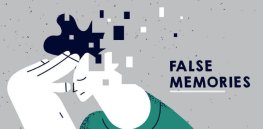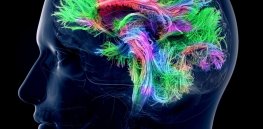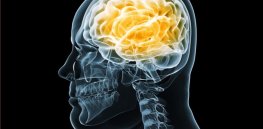Brain/Neuroscience

Alzheimer’s is more common in women. Here’s why
Researchers from the Boston University School of Medicine (BUSM) and the University of Chicago have found a new gene called ...

‘Retracted memories’: The mind treats false recollections as real
False memories can seem just as real as genuine memories. It should be no surprise, then, that they influence how ...

Did you follow COVID lockdown rules? Whether or not you did is partially driven by your DNA
All over the world, people suffered the influence of the COVID-19 pandemic on their wellbeing. However, the impact was not ...

New teaching tactics? Verbal and spatial skills may be inextricably linked in the brain
When students use spatial skills in the classroom, the benefits extend beyond spatial understanding to other kinds of thinking, such ...

New insomnia treatments on the horizon? Different areas of the brain have unique sleep schedules, paving the way for new therapies
Dolphins can swim with one hemisphere asleep while the other is alert, and some neurons in sleep-deprived rats can “switch ...

Neuroplasticity and epilepsy: Why our ever-adapting brain cells are a blessing and sometimes a curse
Brain plasticity is often touted as a miracle cure, but it does have a dark side. Addiction, for example, occurs ...

‘Risks, pitfalls, and challenges’: Synchron’s brain-computer interfaces are on the horizon, but future embrace is murky
Thomas Oxley is the founder and CEO of Synchron, a company creating a brain-computer interface, or BCI. These devices work ...

‘Mind after midnight’: How our brains evolved to hyperfocus on the negative after dark
Plenty of evidence suggests the human mind functions differently if it is awake at nighttime. Past midnight, negative emotions tend ...

Loss of smell is a common symptom of Alzheimer’s, not just COVID. Do these diseases share cognitive symptoms too?
One of the stranger symptoms of Covid — the loss of the sense of smell — is a symptom that, ...

Exploring the history and mystery of Einstein’s stolen brain
When you think of intelligent people, Albert Einstein may be the first name to come to mind. Given his high ...

Differences between human and Neanderthal brains are minimal — so why are we so much smarter?
Our closest human relatives are Neanderthals (split from modern humans at least 500,000 years ago) and their Asian relatives the ...

Hybrid brains: Implanting human neurons into animals to observe their behavior raises ethical concerns
In a darkened room in a laboratory in London, a group of students and researchers watch a clump of human ...

Another knock on processed food? New study suggests excessive amounts could feed cognitive decline
Eating highly processed foods like instant noodles, sugary drinks or frozen meals may be linked to a faster rate of ...

Do you sleep through the night? Your brain rhythmically oscillates between awake and asleep up to 100 times a night
Sleep is a complex neurological process characterized by shifting brain patterns, fluids flushing in and out of the skull, and ...

Talking to newborns: Within the first few hours, they can recognize language patterns and begin learning
Babies actually start processing language and speech incredibly early. Even while in the womb, they learn to discern voices, along ...

Cognitive shortcuts: How ‘magical thinking’ plays an important role in our lives
Adults often deny believing in magic, but on closer inspection, much of our behavior is more magical than we think ...

The mind-bending effects of speaking multiple languages
It turns out that when a multilingual person wants to speak, the languages they know can be active at the ...

Do ‘bionic’ reading devices actually work?
What if something as simple as bolding parts of a word could make reading a breeze, improving your focus, speed ...

Ant colonies function like giant human brains
Ants combine sensory information about their environment with parameters of their colony to arrive at a group response. Most interestingly ...

One geneticist’s quest to crack autism’s code
Without knowing what causes autism, physicians had—and still have—no means of preventing it or reducing its severity, or risk of ...

Vitamin B6 shown effective in treating depression and anxiety
Taking high-dose Vitamin B6 tablets has been shown to reduce feelings of anxiety and depression by new research. Scientists at ...

Updating the ‘serotonin hypothesis’: Mental illness is way more complex than a chemical imbalance
Almost as soon as it was floated in 1965 by Harvard psychiatrist Joseph Schildkraut, the serotonin hypothesis of depression—reduced and ...

Are anxious parents unconsciously ‘teaching’ their kids to be stressed out?
Children were more likely to be diagnosed with an anxiety disorder when a parent of the same sex, rather than ...

How fatty diets wreak havoc on body, brain and heart
An international study led by UniSA neuroscientists Professor Xin-Fu Zhou and Associate Professor Larisa Bobrovskaya has established a clear link ...

Sonic pain relief? Could we reduce pain by manipulating the neural mechanisms that regulate sound?
An international team of scientists has identified the neural mechanisms through which sound blunts pain in mice. The findings, which ...

Ancient human brains reveal that our ancestors meditated to relieve stress
Scientists have discovered that humans, unlike our Neanderthal cousins, evolved the ability to meditate to deal with both past and ...

Gum disease and tooth loss have been largely overlooked as risk factors for dementia
A close link is emerging between oral health and some of the world's most pressing diseases, including cardiovascular disease, diabetes ...

